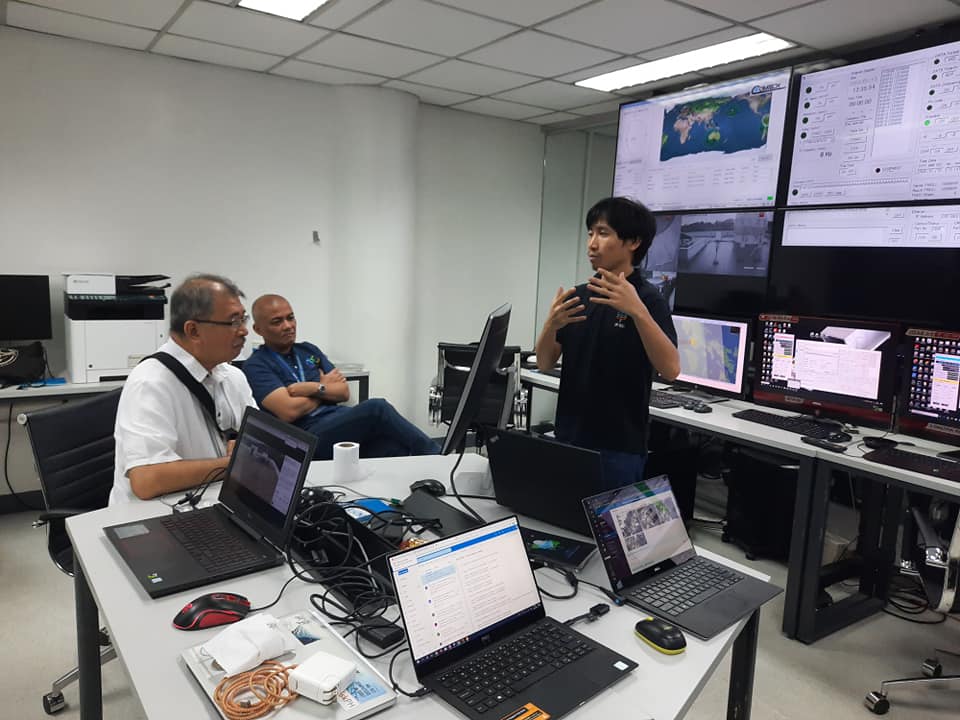UP Diliman experiment wins 1st place in Space Mission Idea Contest in Japan
By: Eldan Sambatyon
|
Published on: January 19, 2020

STAMINA4Space – PHL-Microsat Full Anechoic Chamber testing facility at UP Diliman Electrical and Electronics Engineering Institute, home of the UP ULyS3ES space research. Photo from STAMINA4Space.
We may soon see Filipino designed technology aboard the International Space Station (ISS) as Filipino science researchers from the University of the Philippines Diliman (UP Diliman) won First Place in the 2019 Space Mission Idea Contest (MIC6) at the 7th University Space Engineering Consortium-Global (UNISEC-Global) Meeting in Japan.
A laudable feat by our researchers from the UP Diliman and DOST-Advanced Science and Technology Institute (DOST-ASTI) team as the Philippine team bested other countries in their first participation at the 6th edition of the global science competition held in December 2019.
Team Philippines took the top prize in the IVA-replaceable Small Exposed Experiment Platform (iSEEP) category for their entry, the “Spectrum Monitoring from Space with i-SEEP (SMoSiS)”.
SMoSiS is credited with the ability to “Capture and Map the Digital Divide from Space” with the use of radiofrequency (RF) spectrum measurements. The SMoSiS aims to provide measurement data of RF spectrum occupancy on earth to detect the presence or lack of telecommunication and broadcast services.
The collected data will help locate and determine un-served and “under-served” areas, detection of anomalies, including the disruption and subsequent recovery of wireless technology services during disasters like what just happened in the recent Taal Volcano Eruption.
It provides very important information for proper utilization and better planning management for vital resources and necessary infrastructures in support of fulfilling UN Sustainable Development Goals (SDGs) and eventually providing opportunities to the marginalized sector.
The space Mission Idea Contest (MIC) is actually an avenue for people who are interested in the field of space research to introduce their creative ideas on payloads for the International Space Station (ISS) platform. These research ideas may also lead to breakthroughs, new possibilities on space exploration research and technologies.

The winning MIC6 SMoSiS is presented by Dr. Marciano and Engr. Hilario to DOST Secretary Fortunato dela Pena. Photo from DOST-ASTI.
The research team is composed of Dr. Joel Joseph Marciano, Jr., Engr. Calvin Artemies Hilario, Genedyn Mendoza, and Mar De Guzman.
Dr. Marciano, the newly appointed Director-General of the just-established Philippine Space Agency, is a professor at the UP Electrical and Electronics Engineering Institute and the head of the UP Diliman-DOST microsatellite program that built and launched into orbit Diwata 1, 2 and Maya 1.
Dr. Marciano revealed the team was going to pursue the research whether they win or not, but that their victory was a pleasant surprise and an added bonus for the whole team.
“Our expectation was ‘let’s just have fun explaining this idea to a big audience’ that this is not your typical science experiment. It’s an experiment for the public good, illuminating the state of this infrastructure and connectivity in sharing it openly,” according to an official press statement.
The UP ULyS3ES has been established as the new home for Filipino space scientists, engineers, and technology research.
SEND congratulations to the UP Diliman-DOST team for their landmark win at the 2019 MIC6!
Want to know how to be a Proud Pinoy? Like, Follow, Subscribe to GoodNewsPilipinas.com and our socials Facebook, Twitter, Instagram, Good News Pilipinas! TV on YouTube, for new story notifications and e-mail newsletters for updates on more Filipino Pride stories.